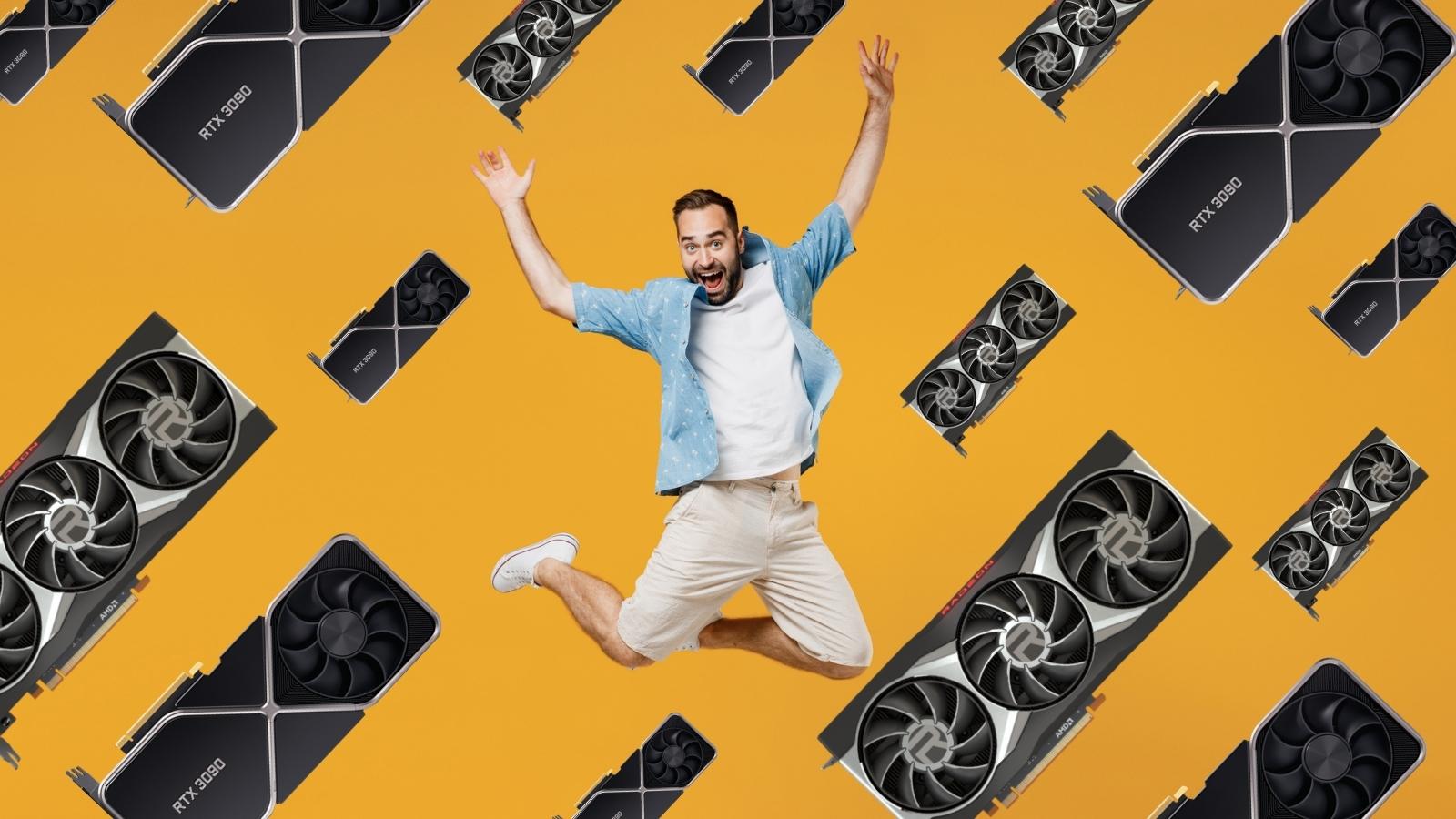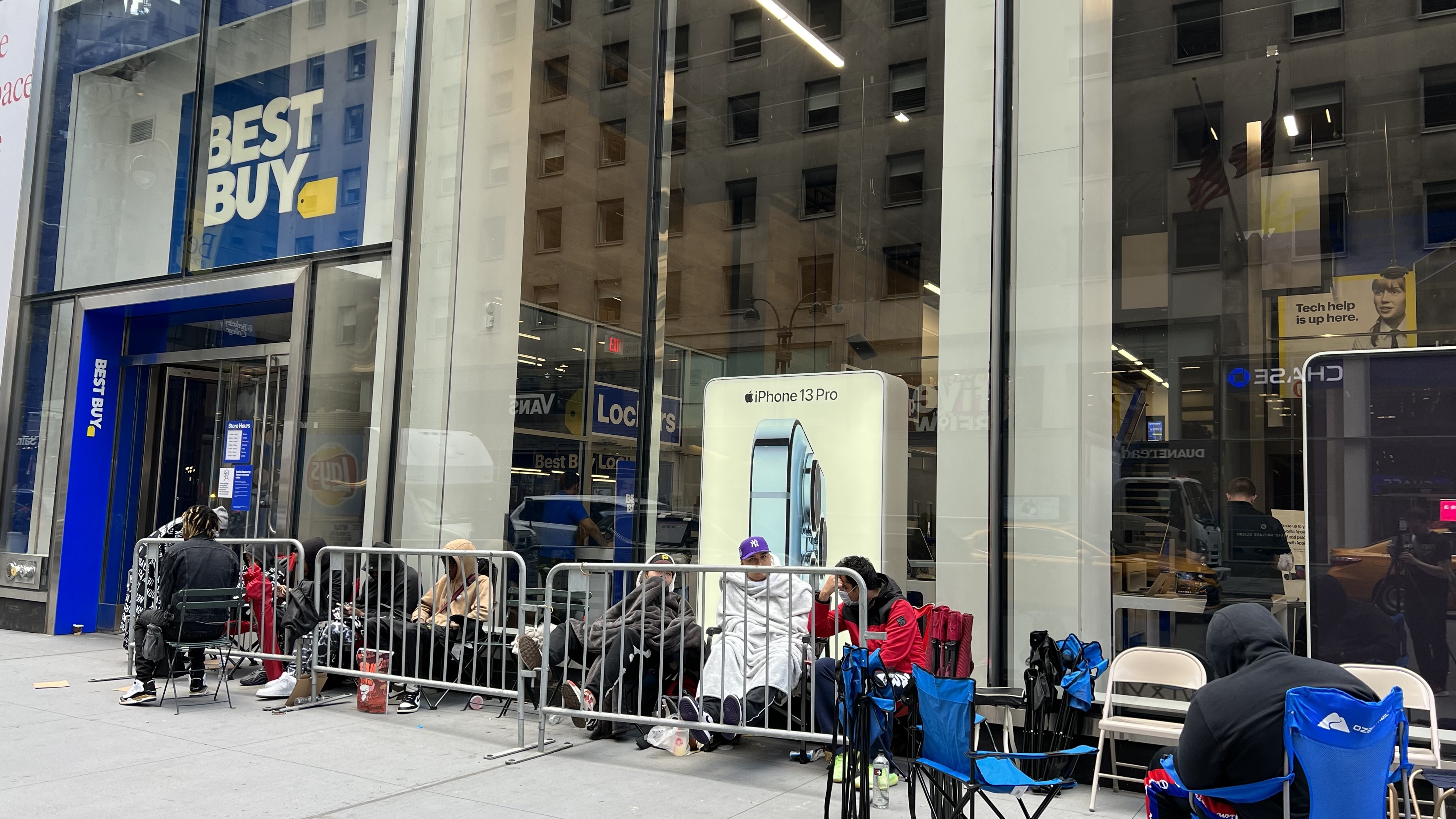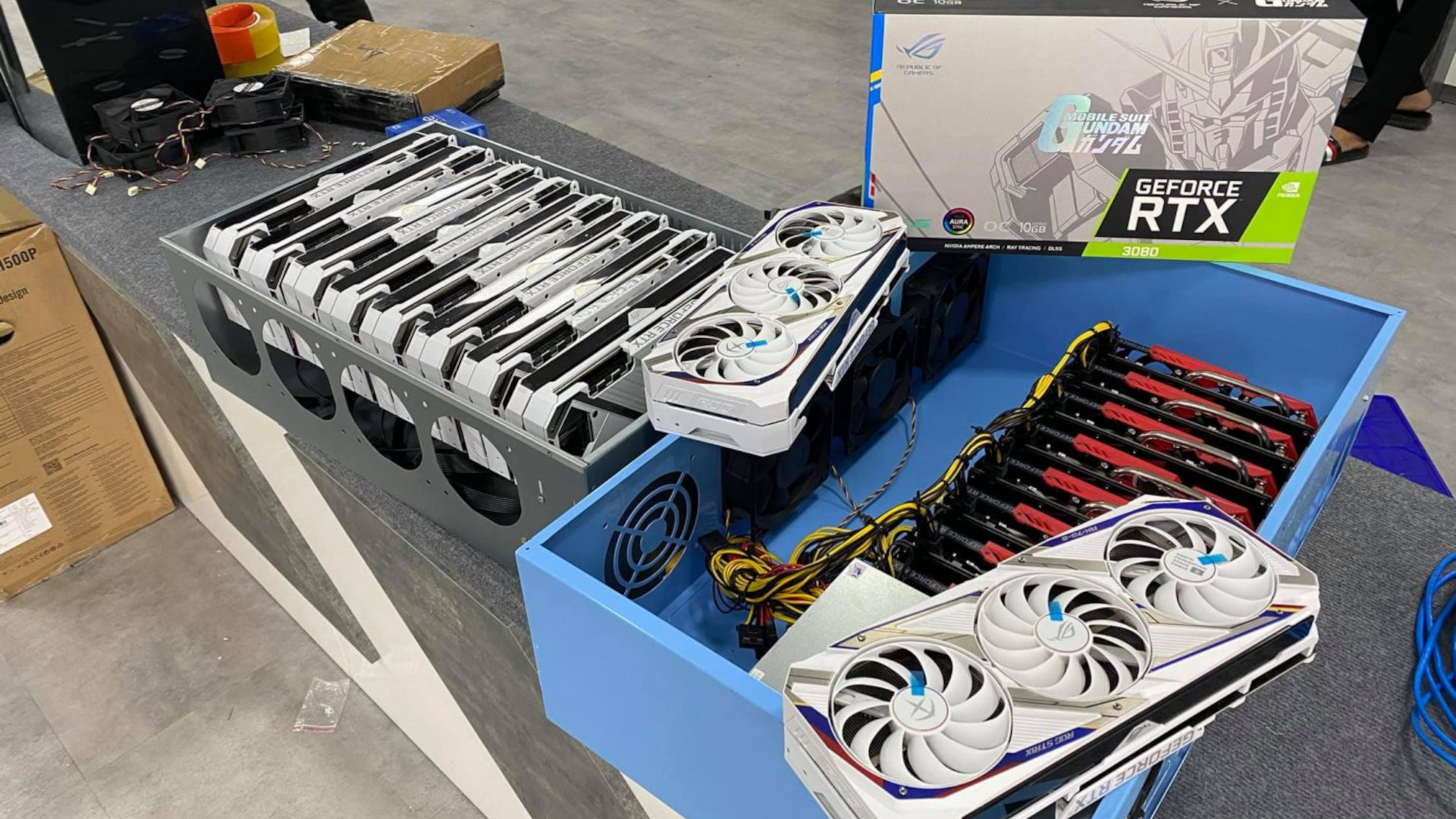Great news gamers – Bitcoin is crashing and taking the crypto market with it
Mining misfortunes could be the respite we needed

Sign up for breaking news, reviews, opinion, top tech deals, and more.
You are now subscribed
Your newsletter sign-up was successful
If you have any investments in popular cryptocurrencies then chances are you’ve had a fairly unpleasant few weeks. While most of the news surrounding the ongoing crypto market crash concerns Bitcoin, its collapse has also dragged several other coins like Ethereum down with it.
At its height, a single Bitcoin was worth almost $64,400, which means that if you purchased $1,000 of Bitcoin back on November 12, 2021, it would currently be worth around $326 today. Similarly, the price of Ethereum fell to $1,112 this week, down from $4,600 back in November, and this was the main currency still being mined using consumer graphics cards rather than application-specific integrated circuit (ASIC) miners.
That’s bad news for crypto bros, but potentially good news for other interested parties who have been praying for the market to crash, even if some folks have nothing to gain from Bitcoin's downfall. One such group is PC gamers and computing enthusiasts who partially blamed crypto miners for the rapid inflation of graphics card prices over the last few years - but will this ongoing market collapse provide a fruitful bounty of cheap GPUs?
It's certainly a possibility, but not everything is black and white. Bitcoin itself hasn’t been a real issue for the gaming community for years as it’s completely unviable to mine using a consumer graphics card. Smaller cryptocurrencies didn't have that issue but Bitcoins' sheer renown and popularity appear to have dragged many of these smaller currencies down with it.
12-18 months ago when I was reporting on the rising cost of recently released GPUs such as the Nvidia GeForce RTX 3080, prices had risen to almost 3x the MSRP for some of AMD and Nvidia’s most popular next-gen offerings, which made the cards impossible to find in stock and wildly unaffordable for most. Some of the blame was placed on crypto miners, from small-scale operations to huge industrial farms, as they had the buying power to snap up all available stock from online stores using bots.
Covid-19 added additional frustrations as physical brick-and-mortar stores remained closed for many months, which forced potential customers to try sourcing new GPUs online, be that from a retailer directly or by paying scalpers on third-party sites such as eBay or Facebook Marketplace.
Wait, so are Crypto miners to blame?

Gamers and PC builders had an understandably depressing few months where it felt like prices wouldn’t fall and the shortage was inescapable. Looking back at the general "vibe" during that time, I was getting pretty sick of hearing about new graphics cards being released because few consumers were able to buy them at a reasonable price. It’s hardly surprising that there were people hoping for the crypto market to crash - even if it was out of spite more than out of a belief that it would fix the market.
Crypto miners certainly didn't make up the biggest issue, but they did cause competition over what little stock was available. In the end, Team Green (Nvidia) put measures in place to make its consumer graphics cards less desirable to those hoping to use them to mine currencies such as Ethereum by installing anti-mining tech into almost the entire Ampere lineup.
Sign up for breaking news, reviews, opinion, top tech deals, and more.
The thing is, the GPU market has been slowly recovering for months now, and the current crash likely has only a small part to play in that.

Asus announced during the company's Q1 earnings call that the fall in demand was likely caused by the crypto industry's intent to move away from GPU-based mining for Ethereum, the world's second most popular cryptocurrency behind Bitcoin.
This is because Ethereum has started to move to proof-of-stake, from the previous proof-of-work method previously used by Bitcoin. In simple terms, proof-of-work is a validation method where computers compete against each other to be the first to solve complex "puzzles" and the winner gets to update the blockchain with the latest verified transactions, being rewarded with some crypto as payment.
This left the validation open to miners using warehouses full of consumer graphics cards to solve those puzzles - vast amounts of electricity go in, and cryptocurrency comes out.
Proof-of-stake instead uses validators to find a block based on the number of tokens they hold, which removes the need for those "puzzles" to be solved. So, while it was previously profitable to mine Ethereum on consumer graphics cards, it will soon be inefficient to do so.
Not only does the crash mean that people will make less money if they continue to mine, but it could also result in some folks tapping out of mining completely and selling off masses of hardware to recover some cash. We could expect an influx of cheap, used graphics cards to flood the market, though you would have to purchase these at your own risk given how long they’ve spent in constant use.
Still, even without used GPUs flooding sites like eBay or Facebook Marketplace, we can expect PC gamers to encounter less competition from crypto miners in the coming months, which should make it easier to snag that GeForce RTX 3060 you've been eyeing.
Rejoice, but be aware our fortunes could change
you_love_to_see_it from r/pcmasterrace
We’re already seeing some of the current generations of graphics cards selling at a discount from new, though the use of the word "already" there might rub salt into some wounds given many of these cards are nearing their second birthday.
We’re just months away from seeing what AMD and Nvidia have to offer in regard to next-gen hardware, and Intel is already testing its desktop GPUs on the Chinese market. The Arc Alchemist will be a generation behind Lovelace and RDNA3 when it launches, but its inclusion could help prevent a shortage.
All of this certainly looks good for …well, anyone who isn’t a crypto miner. With crypto tanking there will be less competition from miners going into the next-gen release, as well as cheap, used hardware for those on a tight budget. The biggest risk here is that there are still other currencies available that use a proof-of-work system, so even when ETH does finally move away from proof-of-work, mining may become lucrative again if the crypto market recovers.
For now though, it seems PC gamers and builders can celebrate a victory over what many considered to be a significant thorn in its side. Crypto markets could recover, of course, but we can at least enjoy some discounted graphics cards before the possible rebound.
Jess is a former TechRadar Computing writer, where she covered all aspects of Mac and PC hardware, including PC gaming and peripherals. She has been interviewed as an industry expert for the BBC, and while her educational background was in prosthetics and model-making, her true love is in tech and she has built numerous desktop computers over the last 10 years for gaming and content creation. Jess is now a journalist at The Verge.
